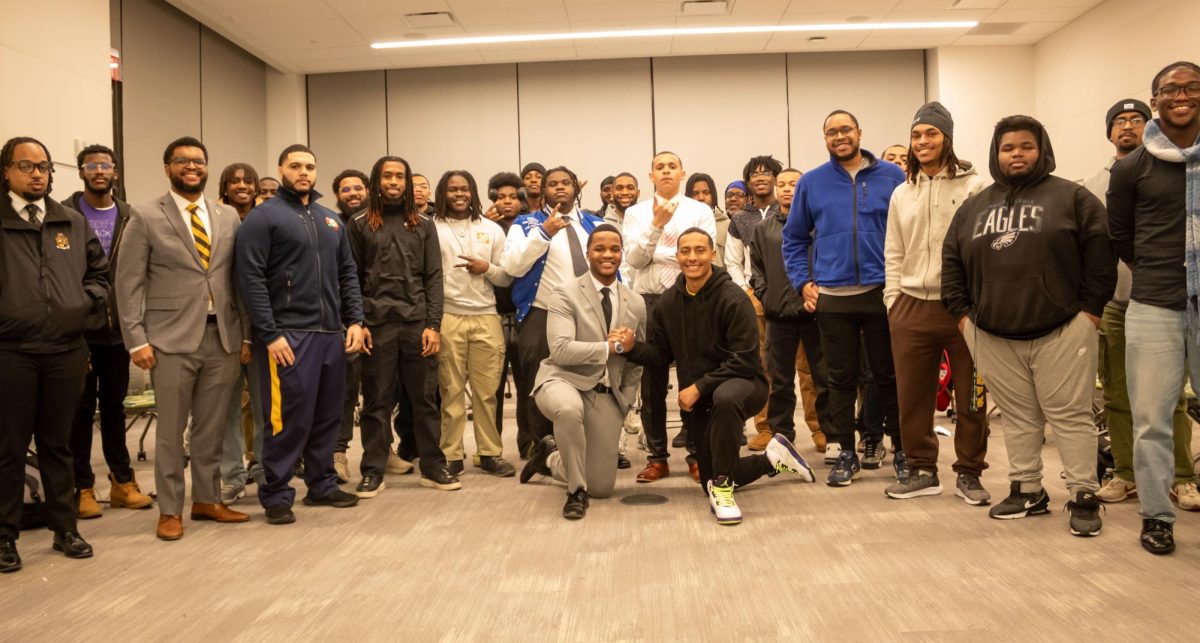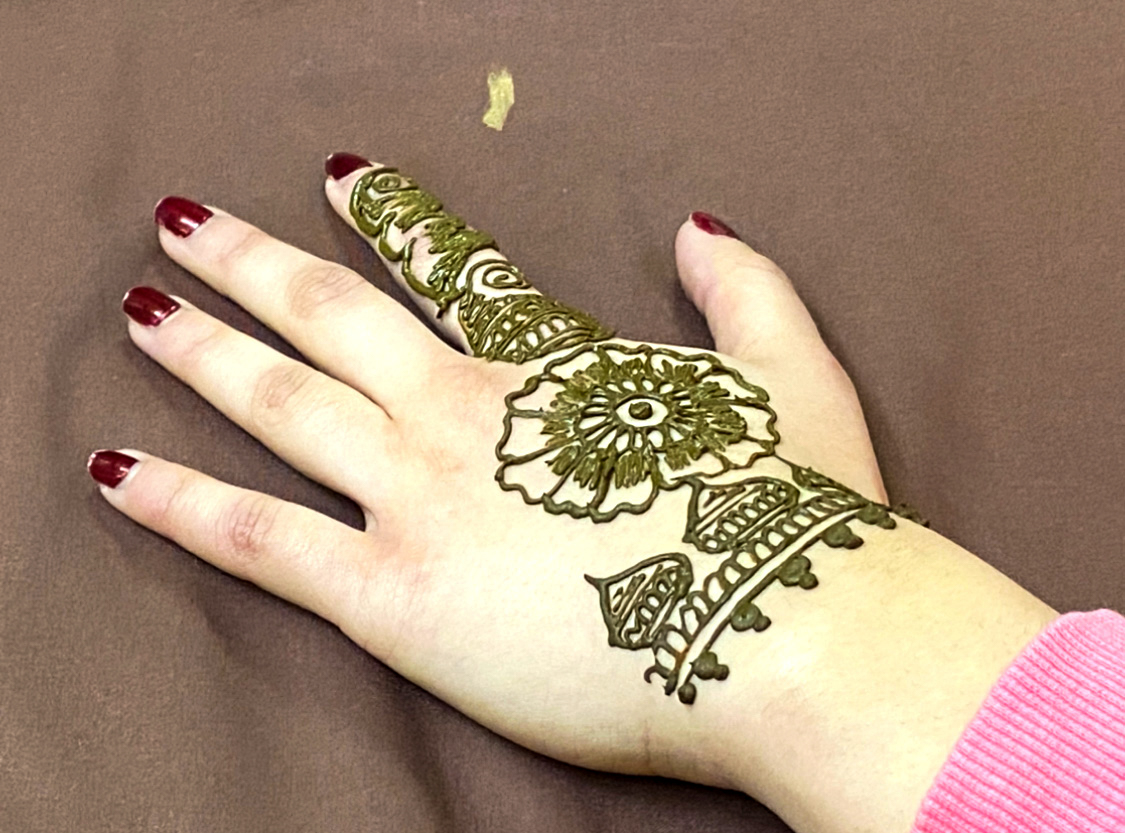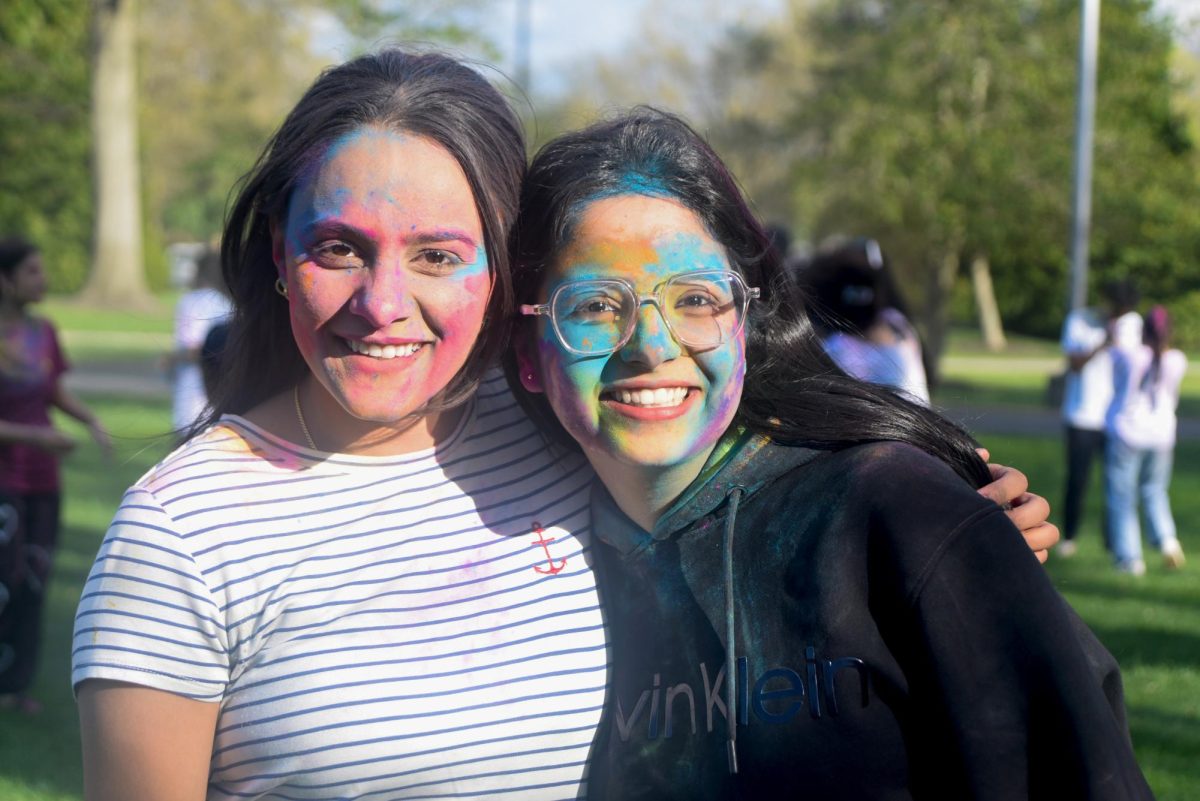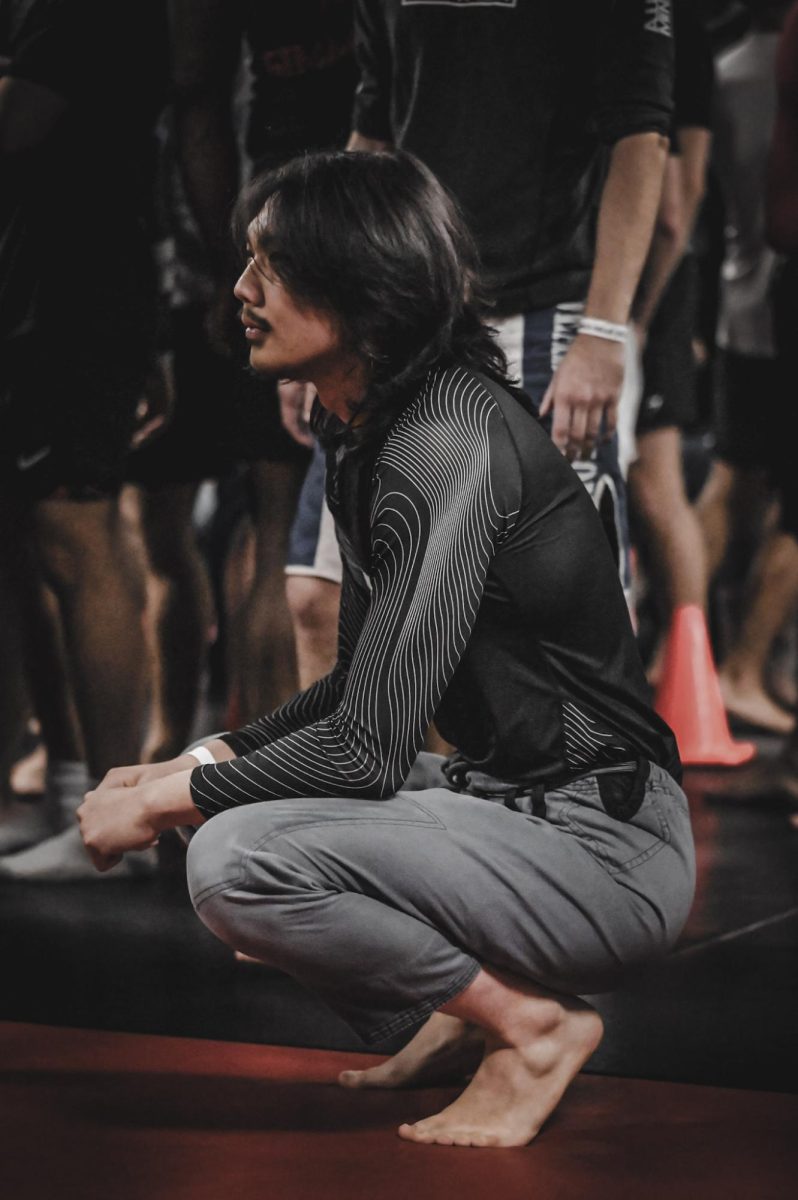Over 30 men of diverse and ethnic backgrounds sat in a half-circle on Tuesday, Feb. 18, at the Men of Color Alliance’s (MOCA) Men’s Mental Health Discussion. With steady voices, they let their guard down by discussing their thoughts and emotions in a space that encouraged vulnerability.
MOCA hosted a Men’s Mental Health Discussion in room 101 in Discovery Hall with the help from fraternities and organizations. The event was co-sponsored by Phi Beta Sigma, Alpha Phi Alpha, and The Black Therapeutic League (BTHL).
Throughout the hour-long conversation kicking off at 8:15 p.m., attendees filled the 37 seats arranged into a half-circle around a silver screen, providing the men with a safe space for vulnerability and support. As they retreated from the frigid 15 mph winds outside, guests helped themselves to an assortment of snacks and refreshments.
Shortly before the event, attendees exchanged fist bumps and bro-hugs and caught up on the Eagles Super Bowl victory parade.
Molique Wright, president of The Black Student Union, led the conversation with a slideshow covering topics ranging from the reality of Black men and their mental health to what could be done to break the narrative of “the strong Black man.”
The discussion kicked off with an icebreaker that asked the men in attendance to share the last time they truly felt at peace and some insight into what was going on.
“I’ll get my coffee and take about 10 to 15 minutes to have some quiet time. Catch up on some things before I start my day. I think it’s important to always start the day with a peaceful moment that can carry you through the rest of your day,” said Timothy Mason Jr., Rowan University alum and collegiate advisor for Theta Psi.
Graduate of the class of 2007, Mason Jr. enrolled at the university in 1992. He attended until 1996, when he joined the workforce, but ultimately made the decision to return to school in 2005 to finish his degree.
Mason Jr. learned about the event through his position as Theta Psi’s Collegiate Advisor. Accompanied by his son Elisha Mason, a sophomore at Timber Creek Regional High School in Gloucester Township, the father and son attended Tuesday’s event.
“I thought it was important to bring my son because, since COVID, I think a lot of people in general, not just the younger generation, have been disconnected from having conversations around mental health,” said Mason Jr. “It was important for him to not only participate in the event but also to see me participate.”
This event wasn’t the first of its kind. Previous leaders of the Men of Color Alliance held a similar event when current president Johnathan Sutton was just getting involved with the club. Inspired by the male leaders, Sutton thought it was best to keep the flames lit of the torch that was passed on to him by hosting another mental health discussion event.
“It was important for us to keep it going on because, sometimes when you share your own story, you can resonate with somebody in the room, and that’s how you build a relationship. That’s how you can also bring that brotherhood to you as well,” said Sutton.
According to the National Institute of Health, Black men across studies largely consisted of post-traumatic stress disorder, depression, schizophrenia, anxiety disorder, substance abuse, and psychiatric comorbidities. Rates of post-traumatic stress disorder ranged from 12%-22%, while rates of depression ranged from 15%-28%.
“It’s incredibly important to have culturally competent therapists provide inclusivity, belonging, and safety. We aim to uphold this value at the Wellness Center. People from different cultural backgrounds bring their unique perspectives, experiences, and ways of coping with stress, and a therapist who understands and respects those differences can make a world of difference in the healing process,” said Gabriel Aquino, a mental health physician at Rowan’s Wellness Center. Aquino and other physicians at the wellness center have created an inclusion and belonging team that includes multiple subcommittees that seek to address equitable and inclusive initiatives.
Apart from having participated in multiple DEI-related training, the Wellness Center collaborates often with the Department of Social Justice and Belonging, as well as the wider Division of Inclusive Excellence, Community, and Belonging at Rowan to continually seek reform where it is needed and to establish tangible DEI related goals.
For comments/questions about this story DM us on Instagram @thewhitatrowan or email [email protected]

























































































































































!["Working with [Dr. Lynch] is always a learning experience for me. She is a treasure,” said Thomas. - Staff Writer / Kacie Scibilia](https://thewhitonline.com/wp-content/uploads/2025/04/choir-1-1200x694.jpg)














































